It is rich in antioxidants
Antioxidants protect your cells from the harmful effects of free radicals and oxidative stress. Oxidative stress contributes to aging, the manifestation of inflammation and many chronic diseases.
Asparagus is high in antioxidants, such as vitamin E, vitamin C and glutathione, as well as polyphenols and flavonoids. According to studies, the flavonoids that asparagus provides have anti-hypertensive, anti-inflammatory, antiviral and anti-cancer action.
In fact, purple asparagus contains strong pigments called anthocyanins, which give the vegetable its characteristic color and act as antioxidants in the body.
Improves digestive function
The proper functioning of the digestive system depends to a large extent on the intake of fiber. Just half a cup of asparagus provides 1.8 grams of fiber, which is 7% of your daily fiber needs. Also, according to studies, adequate consumption of fiber reduces the risk of hypertension, heart disease and diabetes.
Adjusts pressure
Studies have shown that increasing potassium intake in combination with reducing sodium (salt) intake is a very effective strategy for controlling blood pressure and thus preventing hypertension. The contribution of potassium to pressure regulation is twofold: On the one hand, it relaxes the walls of blood vessels so that blood circulates more easily and, on the other hand, it promotes the discharge of excess sodium through the urine.
Asparagus is a good source of potassium, as in an amount equal to half a cup it covers 6% of your body's daily needs in this particular metal.
Helps in weight loss
Asparagus is an important "weapon" in your quiver if you want to keep your body weight low. First of all, it has minimal calories and at the same time a very significant water content (94%). It is also rich in fiber, so it fills you up for longer and prevents cravings.
Supports pregnancy
Asparagus is an excellent source of folic acid, which is also known as vitamin B9. Half a cup of asparagus covers 34% of an adult's daily folic acid needs and 22% of a pregnant woman's daily needs for that vitamin.
Folic acid is involved in the creation of red blood cells and DNA and thereby contributes to healthy growth. Its value is even greater during the early stages of pregnancy, as it ensures the healthy development of the fetus. Adequate intake of folic acid by consuming asparagus, green leafy vegetables and fruits can protect the fetus from neural tube defects, such as spina bifida.
Dos
👍 When choosing asparagus, make sure the sprouts are closed and the asparagus are straight and hard.
👍 It is advisable to consume them on the day you buy them. If you plan to consume them the next day, you can keep them upright in a jar of water, after cutting their bottom, 2-3 cm.
👍 To increase their shelf life a little longer, store them in the vegetable drawer after wrapping them in fresh paper towels and placing them in a plastic bag.

